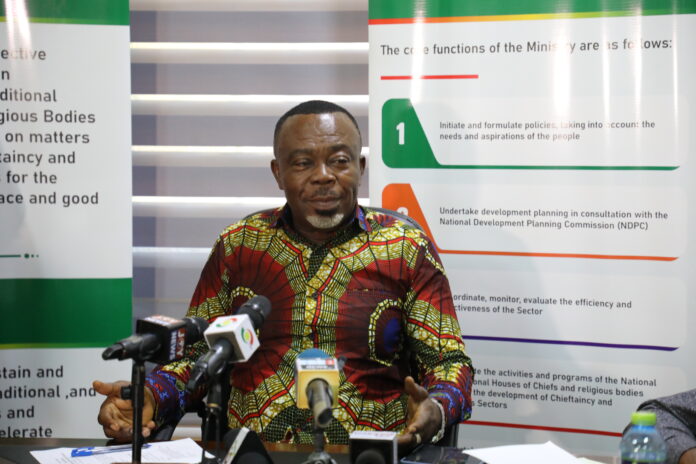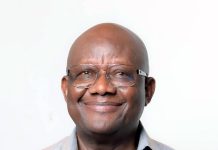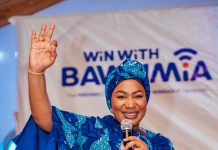The Ministry of Chieftaincy and Religious Affairs has revealed that it has drafted a proposed National Policy on Religion to protect rights of citizens, regardless of their beliefs. This was made known by the sector minister, Stephen Asamoah Boateng, at a news conference in Accra yesterday.
“It is in this regard that my Ministry has been working with key stakeholders to put together a draft proposed government policy for direction of religion, designed to protect the rights and freedoms of all citizens, regardless of their beliefs or non-beliefs”, he said.
The National Policy on Religion also aims to address the challenges and opportunities that arise from the co-existence of different faiths and beliefs in our society.
It will also provide a framework for the protection and promotion of the rights and freedoms of all religious groups, as well as the prevention and resolution of conflicts that may arise from religious differences.

The minister noted that sixteen Regional Stakeholder Consultations have been scheduled as part of the process of reviewing a draft National Policy on Religion.
These consultations, to him, are crucial steps in the development of a comprehensive and inclusive policy that will promote religious harmony, diversity and tolerance in our country, which have been made possible through technical and financial support of the United Nations Population Fund Ghana Country Office (UNPFA).
Mr. Boateng indicated that, “the regional stakeholder consultation is an opportunity for us to hear from you, the representatives of various religious communities, civil society organisations, academic institutions, media outlets and other relevant stakeholders, as well as the general public”.
The consultation will be conducted in a participatory, transparent and respectful manner. We encourage you to share your perspectives and experiences with us, as well as with each other. We also urge you to engage in constructive dialogue and mutual understanding, while respecting the diversity of opinions and beliefs that exist among us.
According to the minister, even though constitution guarantees right to religion and its beliefs are not absolute, it may be subject to limitations that are prescribed by law and are necessary to protect public safety, order, health, morals or the fundamental rights and freedom of others.
“Records from the 2021 Population and Housing Census by the Ghana Statistical Service identified 21.9 million Ghanaians as Christians, 6.1 million Ghanaians as Muslims, 1 million Ghanaians as Traditionalists, 1.4 million in other religions and about 400,000 non-religious”, he added.
With these statistics, he said it is safe to project that almost all Ghanaians are religious which makes his job the more interesting and intriguing.
The Country Director of UNPFA, Dr. Wilfred Ochan, who addressed the media briefly said most people over the world look for religious leaders for guidance, directions or inspirations, because they are believed to have ability to lead their followers.
“Religious leaders are the most respected figures in their communities because they play a powerful role in shaping attitudes and behaviours of their members,” he stated.
According to him, his outfit recognises this unique role by the religious leaders and it is for this reason that they have partnered with the ministry to ensure that they deliver their mandate.
Mr. Ochan believes that having a National guideline or framework that guides the work of this group is worth it, and hoped that some of the actions towards mobilising the population will be a central guideline.









